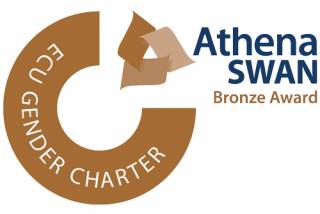Ancient sport was highly competitive. It was focused on individual success and did not promote team spirit. There were no team sports (unlike modern athletic events). In martial sports, there could only be one winner - no second or third prize were allowed. Our sources make no explicit mention of enjoying oneself at the Games; glory was key and winning was the only goal. For the major Panhellenic games the reward was a simple crown of leaves, at the Olympics an olive-branch; and of course fame and honour, both for the athlete and his host city, but also material rewards once the athlete returned home, including a large supply of olive oil and free meals; money rewards are also attested. Greek sport has been idealised and the notion that the Greeks competed for glory has been promoted both by ancient and modern sources, but the reality is that the athletes could use their success as the basis for influence in their polis; they also received generous rewards when victorious - and major loss of face when they were not.
" Pindar Isthmian 4.45-49 For he is similar to the spirit of loud-roaring lions in boldness as he labours, and in skill he is like a fox who, stretching out, restrains the eagle's swoop. One must do anything to render the opponent powerless.
" Antiphon Tetralogy 2.3.6 He believed that the danger from the indictment was not less but greater than this one here, as I will prove to you. Let us accept that he had the same expectations of being convicted or acquitted in both lawsuits. He had no hope of the indictment being brought before the court while his opponent was still alive. For the latter would not have obeyed him. But he did not expect to get to the present trial either; for he thought he could kill his opponent without being found out.
" Pausanias 6.9.6-8 on violence During the Olympic Games prior to the current ones, they say that Kleomedes of Astpalaia killed Ikkos, a man from Epidaurus, in a boxing match. And as the Judges decided that he had played unfairly and he was stripped from his victory, maddened because of his grief he returned to Astypalaia. There he attacked a school of about sixty children and overturned the pillar which held the roof. When the roof fell upon the children, he was chased with stones by the citizens and he fled to the sanctuary of Athena. He got into a chest that was placed in the sanctuary and he dragged the lid over him, and the people of Astypalaia were labouring in vain trying to open the chest. Finally, when they broke down the boards of the chest, because they did not find Kleomedes dead or alive, they sent envoys to Delphi to ask what happened to Kleomedes. And the say that Pythia said the following: "Kleomedes of Astypalaia is the last of the heroes. Honour him with sacrifices as he is no longer mortal." And so from this time the people of Astypalaia pay honours to Kleomedes as a hero.
" Pindar, Isthmian 1.47-51, on rewards for the athlete "For a different reward is sweet for men for different deeds, to the shepherd and the farmer and the bird-catcher and the man whom the sea nourishes. Everyone is anxious to keep persistent famine off his belly. He who receives splendid glory in athletic contests or in war, receives the highest gain, being praised by the citizens and foreigners, the flower of speech."
Our sources mention the diet of the athletes, giving specific instructions about which foods should be preferred or avoided - including warnings against drunkenness and other excesses. The idea of asceticism and abstinence while engaged in training and competition is prominent in the sources.
" On excess by Milo of Croton: Athenaeus, Deipnosophists, Book 10, 412d-e Theagenes, the athlete from Thasos, ate an ox all by himself, as Poseidippos says in his epigrams... And Milon of Croton, as Theodoros the Hierapolitan says in his writings about the Games, ate twenty mnae of meat and the same amount of bread, and he drank three choae of wine. And in Olympia he placed a four-year-old ox onto his shoulders and carried it around the stadium and after that he cut it up himself and ate it all in one day.
" Aristotle, Nicomachean Ethics, 1106b If we say that ten mnae of food is a lot, and two is not enough, the trainer will not prescribe six mnae: for this portion might be much or not enough for the person receiving it. For to Milon it would not be enough, but to a person just starting his training it would be a lot.
" On Abstinence: Plutarch, Convivial Questions, 710d But Cleitomachus the athlete was wondered at because he got up and went away every time someone might bring up the issue of love.
 Close
Close



